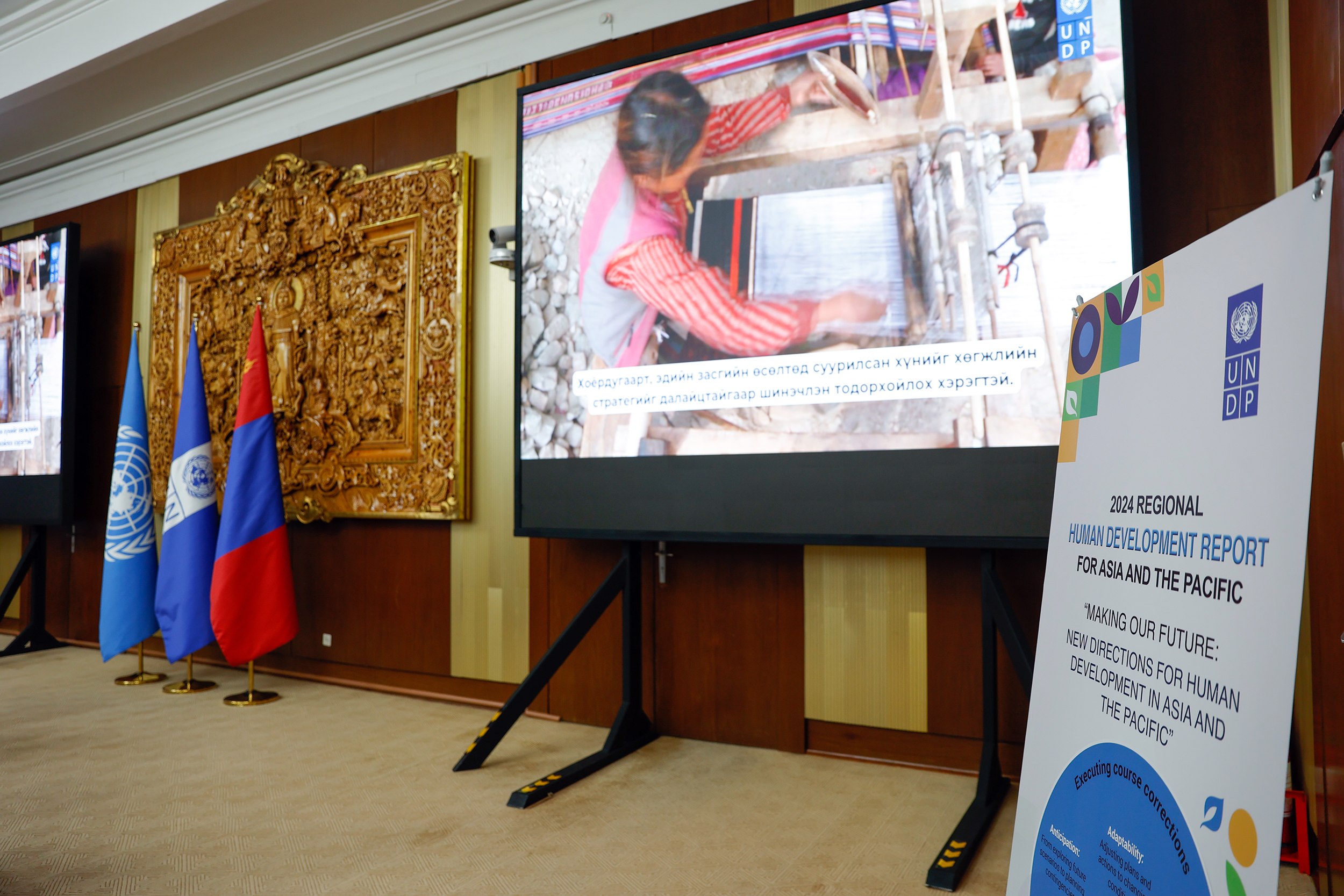Navigating the Uncertain Future: Ways for advancing human development in Mongolia
November 29, 2023

Group gathers at SDG Open Day event
In the heart of Asia-Pacific, Mongolia stands as a nation at the crossroads of development, like an adventurous traveler navigating both tradition and modernity, boasting its vibrant democracy and cherished nomadic cultural values drawing strength from its resilient and young population.
For decades, UNDP has been a committed and trusted partner for Mongolia’s path towards development and witnessed its transition from a low to high human development country.
While the progress on human development remains evident, the changing world characterized by rising global geo-political tensions, technological disruptions, and looming existential threats from climate change are all not only constraining current progress, but also making the future uncertain and volatile.
So, now the questions are how nations like Mongolia can change course in the face of rising uncertainty? How can their leaders make the optimal decision? How can human development be advanced?
The recently unveiled 2024 Asia-Pacific Human Development Report serves as a guideline to navigate through these uncertainties while advancing human development and reducing inequalities in the region, and in Mongolia.
The report, which places future-fit governance at its core, proposes three crucial directions in human development: placing people at the heart of progress, recalibrating growth strategies, and making change happen.
This blog will explore the critical role of future-fit governance in propelling Mongolia towards a sustainable and prosperous future, drawing insights from regional perspectives on development strategies and the imperative for strategic and adaptable governance.
What is it?
To start with the core set of messages of the report – countries will have to go beyond the past approaches. That entails revisiting strategies towards human development and growth, better integrating the two, as well as intensifying efforts to transform strategy into practice. Doing things better requires a departure from conventional models and an acceptance that no single solution holds all the answers.
To break free from stagnant equilibrium, adaptation and flexibility are desirable. Therefore, at the heart of driving the change, lies the concept of future-fit governance characterized by leadership and governance that are anticipatory, adaptable, and agile; and involve all stakeholders as agent of change.
It's about creating policies and systems that can evolve with the shifting landscape, effectively addressing inequality, responding pro-actively to environmental challenges, and ensuring that democratic values are upheld with people and communities placed at the heart of it all.
How can it be enabled?
The effective transition to the ‘Governance for the Future’ requires political will, collaborative leadership, and civic engagement to execute course corrections for doing development better.
This means paying closer attention to the ‘political economy’ of reform, arriving at better understandings of the shifting relationships between individuals, states, and markets to make change happen at a tactical level.
Who should lead it?
Everyone. The people, civil servants, civil society, media, private sector, the Government, youth and so on.
The report argues that people and communities should not be passive beneficiaries of development but active agents who can engage fully in economic, social and political life, and in building human security – while remaining committed to a healthy environment and exercising careful stewardship of the planet for future generations.
Becoming de facto co-designers of a future-fit governance system is a collective responsibility. While changes to governance systems may not yield immediate results, they lay the foundation for sustained, positive transformations.
Call for action
As Mongolia sets sail into the uncharted waters of its sustainable developmental journey, the compass points unmistakably towards future-fit governance.
The path to the future success also hinges on strengthening state capacities, improving governance, and initiating a systemic reset needed for charting new directions for advancing human development in Mongolia.
Drawing inspiration from countries where good governance has driven development, Mongolia can invest in making people agent of change in addition to motivating its civil servants to innovate and serve as catalysts for change.
By embracing this change, actively involving citizens, and fortifying state capacities, Mongolia can navigate uncertainties and emerge as a beacon of sustainable human development in the Asia-Pacific region.
The full report: https://bit.ly/47jtiAg

UNDP unveiled its highly anticipated 2024 Asia-Pacific Human Development Report in Mongolia

 Locations
Locations